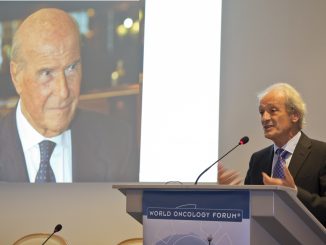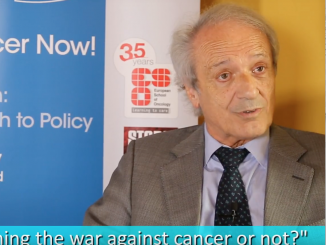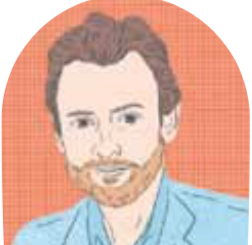High-income countries need to target cancer when allocating health care funds to emerging and low income countries, says Richard Sullivan, Professor of Cancer and Global Health at Kings College London. He proposes that those funding research programmes in richer countries should pay a 5% donations levy to support cancer services in the developing world.
•
Speaking at the World Oncology Forum in Lugano, Switzerland, Sullivan described high-income country support for the global cancer burden as “pretty dismal”. New approaches and funding are needed to develop national cancer control and medical teams in low-income and emerging economy countries, where cancer is becoming a leading health problem.
Currently, less than 2% of development assistance for health is directed towards non-communicable diseases and only a fraction of that goes towards cancer services. Interviewed during the Forum, Richard Sullivan said: “There just isn’t a specific focus on cancer that there really needs to be because it is a major systems challenge in nearly all of the low income and emerging economies.”
One priority is for countries to gather good quality data on cancer in their populations. Another is to develop the capability and capacity of the workforce. “It is very easy to buy equipment and build new hospitals. What takes a lot of time is to build the workforces necessary to deliver complex cancer control.”
Sullivan points out that there are about 111 different procedures that surgical teams need to be able to perform in cancer. Countries also need to develop expertise in cancer pathology, radiotherapy, medical oncology and palliative care.
Donor countries should specifically include cancer in overseas development aid while rich institutions and research funders should consider a kind of “donation tax” on the research they are funding in richer countries. “There are vast sums of money flowing around to support research and capability enhancement, that are just not making it to support emerging and low-income economies. Something as simple as a 5% dividend that flowed overseas to support those sorts of countries would make a radical difference because it would support areas such as vital statistics and registries that are simply not a sexy area for most of the funding that is coming through now.”
Problems are increasing in low – and middle-income countries, not only because of rising levels of cancer but also because of conflict and refugee flows.
“Nearly a quarter of the population on the globe now lives in or is affected by conflict in some form. Places like Syria and Libya that used to have very good outcomes for their cancer patients have gone completely backward. It will take 50 years or more of concerted effort to rebuild their cancer control systems. As the refugees settle in places like Jordan, Turkey and Lebanon and are absorbed into domestic populations, it puts a huge impact and burden on those particular countries to deliver cancer care at the same time as having to deliver care to their own vulnerable populations.
“This is a huge challenge that high income country donors simply have not stepped up to the plate yet about and understood and it is something we really urgently need to address.”
Sullivan is Director of the Institute of Cancer Policy at Kings, established to address major public policy and health issues facing the global cancer community.





